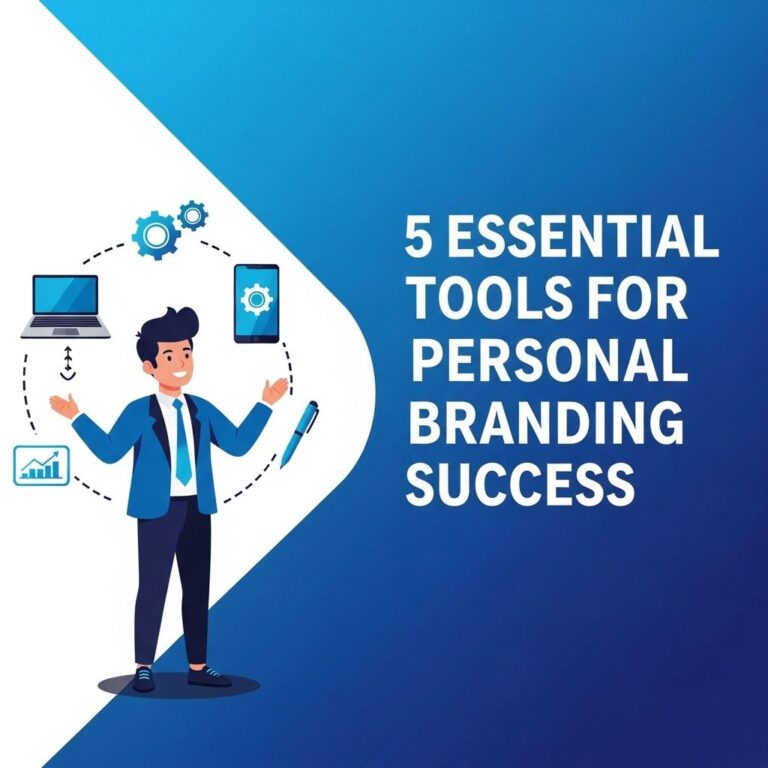In today’s hyper-connected digital world, personal branding has become a crucial element for professional success. It encompasses the perception others have of you, shaped by your online presence, communication style, and overall persona. Whether you’re a freelancer, entrepreneur, or corporate professional, elevating your personal brand can open doors to new opportunities, enhance your credibility, and position you as a leader in your field. In this article, we will explore several strategies to amplify your personal branding efforts and make a lasting impression.
Table of Contents
Understanding Personal Branding
Before diving into actionable strategies, it’s essential to understand what personal branding truly means. It is not just about self-promotion but about authentically conveying your values, skills, and experiences. Personal branding involves:
- Defining your unique value proposition.
- Creating a consistent image across platforms.
- Engaging with your audience and building trust.
Define Your Unique Value Proposition
To stand out in a crowded marketplace, you must articulate what makes you unique. This is your unique value proposition (UVP). Here are steps to help you identify your UVP:
1. Self-Assessment
Reflect on your strengths, skills, and passions. Consider using the following tools:
- SWOT Analysis (Strengths, Weaknesses, Opportunities, Threats)
- Personality Assessments (e.g., Myers-Briggs, DISC)
2. Research Your Audience
Understanding who you are trying to reach is vital. Create a persona of your ideal audience or customer:
- Demographics: Age, location, profession
- Interests and Pain Points
- What value do they seek from you?
3. Craft Your UVP Statement
Your UVP should be a concise statement that captures your essence. For example:
| Aspect | Example |
|---|---|
| Who You Are | A digital marketing strategist |
| What You Offer | Data-driven marketing solutions |
| Who You Help | Small to medium-sized businesses |
| What Makes You Unique | Expertise in SEO and content marketing |
Your UVP could be: “I help small businesses grow their online presence through innovative SEO and content marketing strategies.”
Build a Strong Online Presence
In the digital age, your online presence is often the first impression you make. Here’s how to curate an impactful online persona:
1. Optimize Your Social Media Profiles
Your social media profiles should reflect your brand consistently:
- Use a professional profile picture.
- Craft a compelling bio that includes your UVP.
- Link to your portfolio or website.
2. Create Valuable Content
Content is king when it comes to personal branding. Regularly produce content that showcases your expertise:
- Blog posts
- Videos or podcasts
- Webinars or live sessions
3. Engage with Your Audience
Interaction fosters relationships. Connect with your community by:
- Responding to comments and messages.
- Participating in relevant groups and forums.
- Networking with other professionals in your industry.
Leverage Networking Opportunities
Building a network is a vital aspect of personal branding. Here are key strategies to expand your professional circle:
1. Attend Industry Events
Conferences, webinars, and workshops are excellent venues for networking. Consider:
- Joining interactive sessions for direct engagement.
- Exchanging contact information with fellow attendees.
2. Collaborate with Others
Collaborations can be beneficial for all parties involved:
- Partner with influencers for joint projects.
- Contribute guest posts to reputable blogs.
- Participate in panel discussions.
3. Utilize LinkedIn Effectively
As the largest professional networking site, LinkedIn is a powerful tool for personal branding:
- Regularly update your profile with achievements.
- Publish articles to showcase your expertise.
- Connect with industry leaders and engage with their content.
Monitor and Adapt Your Brand
Personal branding is not a one-time effort; it requires ongoing monitoring and adaptation:
1. Gather Feedback
Seek feedback from peers, mentors, or your audience about your brand perception. Tools like surveys or informal chats can provide insights.
2. Track Your Online Presence
Use tools like Google Alerts or social media monitoring platforms to track mentions of your name and brand.
3. Be Open to Change
As you grow, your brand may need to evolve. Be willing to adapt your UVP and strategies based on feedback and changing market conditions.
Conclusion
Elevating your personal branding game is a continuous journey that requires self-awareness, strategic planning, and active engagement. By defining your unique value proposition, building a strong online presence, leveraging networking opportunities, and remaining adaptable, you can create a powerful personal brand that resonates with your audience and opens doors to new opportunities. Start implementing these strategies today, and watch how your personal brand transforms your professional life.
FAQ
What is personal branding?
Personal branding is the practice of marketing yourself and your career as a brand, showcasing your unique skills, values, and personality to stand out in your industry.
How can I improve my personal branding online?
You can improve your personal branding online by creating a professional website, optimizing your social media profiles, sharing valuable content, and engaging with your audience regularly.
Why is personal branding important?
Personal branding is important because it helps you establish credibility, build trust with your audience, and differentiate yourself from competitors in your field.
What are some effective personal branding strategies?
Effective personal branding strategies include networking, consistently sharing your expertise, leveraging testimonials, and aligning your online presence with your personal values.
How can I use social media for personal branding?
You can use social media for personal branding by sharing industry insights, showcasing your achievements, engaging with followers, and joining relevant professional groups to expand your reach.
What role does content creation play in personal branding?
Content creation plays a crucial role in personal branding as it allows you to demonstrate your expertise, provide value to your audience, and establish yourself as a thought leader in your niche.









